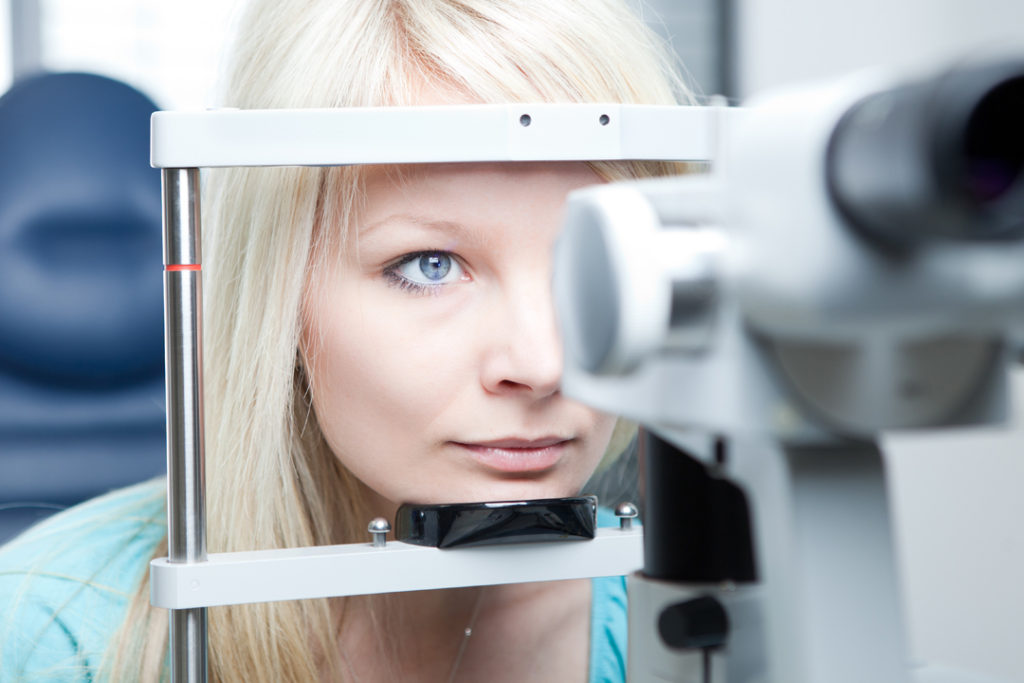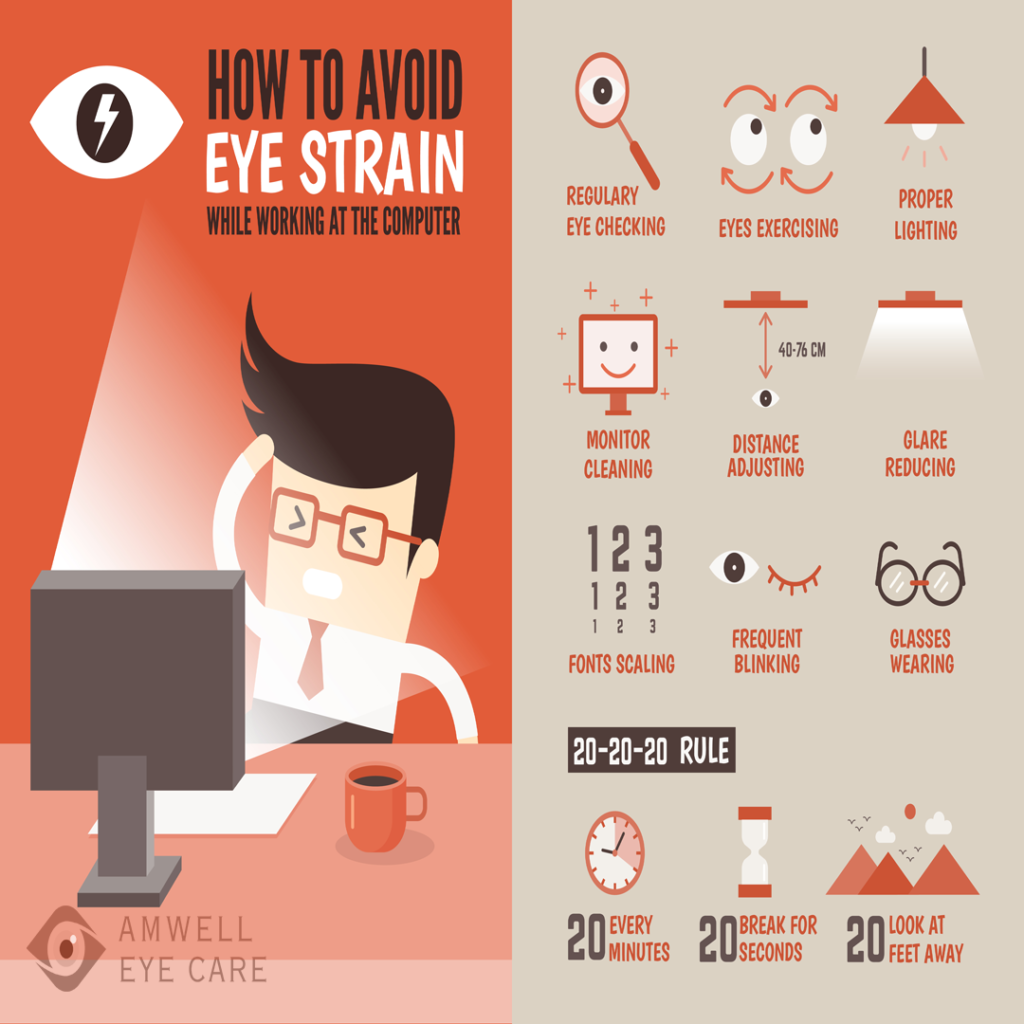16 Jun 6 Tips For a Lifetime of Healthy Vision
Sight, the most precious sense of all, allows us to appreciate life and help us navigate the world around us. In a single glance, lasting a fraction of a second, our eyes transmit electro-chemical impulses to the brain to give us information on the size, shape, color, and texture of an object. With our eyes, we are able to walk on the forest floor, gaze at the lushness of the trees, and recognize the color-infused flowers.
Millions of people have problems with their vision every year.Some of these problems are quite common which can be corrected with glasses or contact lenses, while others are more severe leading to detrimental vision loss and blindness. Be proactive about your eye health, follow the tips and resources below to preserve our most important sense and to ensure a healthy vision for the long-term.
1) Check Yearly

Not only does routine eye exams detect vision problems related to prescription needs, but also evaluate for eye disease and general health problems before you are aware a problem exists. Serious vision and health-threatening conditions such as glaucoma, high blood pressure, high cholesterol, and diabetes often manifest signs inside the structures of eye while the patient may have no apparent symptoms. You may be suprised that it is not uncommon to discover cancer inside the eyes that could lead to partial or total vision loss. Consider the follow statistics, close to 67 million adults in the U.S. have not had an eye exam within the past two years, including 6 million adults who have NEVER had an eye exam. Getting your eyes checked regularly will help keep you on the path to healthy eyes in the years to come.
2) UV Protection
Protect your eyes from sunlight. Exposure to ultra-violet (UV) radiation from the sun happens every day even if it’s a dark and cloudy day. Most of the time you don’t even realize it because UV rays are invisible to the eye. Here is an interesting fact. Nearly 85% of people know the sun is harmful to the skin, but only 10% know it can damage the eyes. Long term complications from the UV rays could potentially lead to blindness. It’s important to wear sunglasses to safeguard your eyes from the sun’s harmful ultraviolet rays. Be sure to select high quality sunglasses that block 99-100 percent of both UVA and UVB radiation. Get in to the habit of wearing sunglasses while driving will go a long way to preserve your eye health.
3) Avoid Smoking
Smoking is essentially harmful to nearly every organ in the body, including your eyes. Heart disease, stroke and cancer are on the top of the list while eye problems caused by smoking are less well known. Such harmful habit exposes the eyes to high levels of harmful chemicals and increases your risk of developing age-related macular degeneration (AMD) and cataracts. AMD leads to central vision loss affecting the ability to read, drive, and recognize faces—and it can cause blindness in severe cases. Currently, there is no cure for AMD while treatment options aim to slow down the progression. Cataract causes cloudy vision that deteriorates over time which ultimately has to be surgically removed. Additionally, smokers are also at a greater risk for developing diabetic retinopathy – a sight-threatening disease of the retina. The Centers for Disease Control and Prevention offers valuable resources to help smoking cessation.
4) Healthy Diet
Eat your fruits and vegetables! Studies have shown that fruits and vegetables of various colors can be consumed to increase dietary intake of lutien and zeaxanthin, which are called carotenoids that act as antioxidents – reduce the risk of AMD and cataracts. Green leafy vegetables including kale and spinach top the list of lutein-rich foods. Other healthy options include collards, turnip greens, broccoli, green beans, and Romaine lettuce. Breakthrough studies conducted by the National Eye Institute have shown taking certain nutritional supplements reduce the risk of developing AMD. In order to maintain healthy vision, consider taking daily supplements if intake from diet is not sufficient.
6) Hygiene
Practice proper contact lens care if you wear contacts. Always wash, rinse and dry hands before inserting and removing. NEVER rinse your lenses from tap water which may contain microorganisms that could contaminate the lenses leading to an infection. Clean and disinfect with fresh, unexpired lens care solutions. Cleaning removes protein deposits buildup, cosmetics and other debris that impairs lens comfort. The best practice is to ALWAYS rub the lens in the palm of your hand with a few drops of solution. Remember to always follow your doctor’s recommended contact lens replacement schedule and cleaning regimen. Avoid sleeping in your contacts at all causes.
6) Rest Frequently on Digital Devices

Take frequent breaks from the computer screen. Computers, tablets, e-readers, smartphones and other electronic devices with visual displays can all give rise to eyestrain, blurry vision, dry eyes, neck, shoulder and back pain to name a few. Follow the 20/20/20 rule, every 20 minutes, look 20 feet away from the computer for 20 seconds. Blink more often, and try to avoid glare on your computer from other illuminating sources.



